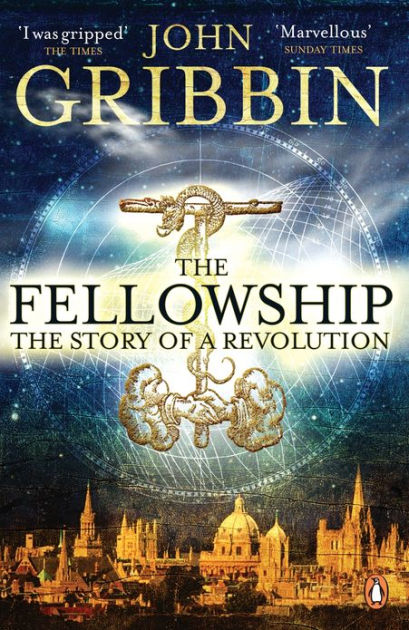Newly released
This book is new and will be uploaded as soon as it becomes available to us and if we secure the necessary publishing rights.

The Fellowship: The Story of a Revolution Book PDF
(0)
Author:
John GribbinNumber Of Reads:
67
Language:
English
Category:
HistorySection:
Pages:
545
Quality:
excellent
Views:
736
Quate
Review
Save
Share
Book Description
Seventeenth-century England was racked by civil war, plague, and fire, a world ruled by superstition and ignorance. But then a series of meetings of "natural philosophers" in Oxford and London saw the beginning of a new method of thinking based on proof and experiment. At the heart of this renaissance were the founding fathers of modern western science: The Royal Society. John Gribbin's gripping, colorful account of this unparalleled time of discovery explores the birth of the Society and brings its prime movers to life. Gribbin shows how the triumph of the scientific revolution changed the world--and still continues to change it 350 years later. The Fellowship reveals that all that ensued was ultimately not the work of any single isolated genius, but of a Fellowship of brave and inquisitive men in search of the truth.
John Gribbin
John Gribbin is a British science writer, an astrophysicist, and a visiting fellow in astronomy at the University of Sussex. His writings include quantum physics, human evolution, climate change, global warming, the origins of the universe, and biographies of famous scientists. He also writes science fiction. John Gribbin graduated with his bachelor's degree in physics from the University of Sussex in 1966. Gribbin then earned his Master of Science (MSc) degree in astronomy in 1967, also from the Univ. of Sussex, and he earned his PhD in astrophysics from the University of Cambridge (1971).
In 1968, Gribbin worked as one of Fred Hoyle's research students at the Institute of Theoretical Astronomy, and wrote a number of stories for New Scientist about the Institute's research and what were eventually discovered to be pulsars.
In 1974, Gribbin, along with Stephen Plagemann, published a book titled The Jupiter Effect, which predicted that the alignment of the planets in a quadrant on one side of the Sun on 10 March 1982 would cause gravitational effects that would trigger earthquakes in the San Andreas Fault, possibly wiping out Los Angeles and its suburbs Gribbin distanced himself from The Jupiter Effect in the 17 July 1980, issue of New Scientist magazine, stating that he had been "too clever by half".
In February 1982, he and Plagemann published The Jupiter Effect Reconsidered, claiming that the 1980 Mount St. Helens eruption proved their theory true despite a lack of planetary alignment. In 1999, Gribbin repudiated it, saying "I don't like it, and I'm sorry I ever had anything to do with it.
In 1984, Gribbin published In Search of Schrödinger's Cat: Quantum Physics and Reality. The Spectator Book Club described it as among the best of the first wave of physics popularisations preceding Stephen Hawking's multi-million-selling A Brief History of Time.Gribbin's book was cited by BBC World News as an example of how to revive an interest in the study of mathematics.
In 2006, Gribbin took part in a BBC radio 4 broadcast as an "expert witness". Presenter Matthew Parris discussed with Professor Kathy Sykes and Gribbin whether Albert Einstein "really was a 'crazy genius'".
At the 2009 World Conference of Science Journalists, the Association of British Science Writers presented Gribbin with their Lifetime Achievement award.
Book Currently Unavailable
This book is currently unavailable for publication. We obtained it under a Creative Commons license, but the author or publisher has not granted permission to publish it.
Rate Now
5 Stars
4 Stars
3 Stars
2 Stars
1 Stars
The Fellowship: The Story of a Revolution Quotes
Top Rated
Latest
Quate
Be the first to leave a quote and earn 10 points
instead of 3
Comments
Be the first to leave a comment and earn 5 points
instead of 3